“The Mothers of Llullaillaco”by Julia Aguirre I heard the story of The Children of Llullaillaco, and the thousands that preceded and followed them. I wept for them, though it was hundreds of years ago, and I was angry for their bodies, kept from their families in life, in death, and hundreds of years after. But in between all that, I thought of their mothers. The mother of El Niño, what she might have felt, when her baby was taken that day. She always knew he was beautiful, from the moment she held him in her arms, he was the most beautiful thing to her, and he would have been even if the elite declared him ugly. But they declared him beautiful. Was it because she looked at him like he was? If that was the reason, would she have taken it all back, treated him as a monster, if just to let him live? They say that the families of the poor should have been honored, honored that their beautiful peasant children looked like they could be the children of kings, honored that their precious sons and daughters would be sacrificed, to save the true royal blood that graced the earth. How could you not be grateful, they said as they bound the children like slaves, that we get to kill your child? The mother was not grateful. Another may have been able to lie to their children, to fake a smile until they were out of sight. He is just a child, just a baby, and she cries, she screams and fights even when they beat her into the ground. She knows she might not see tomorrow for her outburst, but she will not let her baby go, no, not without him knowing that this is wrong, that she didn’t want this, that he should have lived and been happy. She will take his place, she will carve out her own heart for the gods, place herself on the altar to appease the wealthy who crave the blood of her son. El Niño cries, and in a moment, he is gone. His mother is not dead, not yet. But she wishes she was. In five hundred years she will be called a barbarian by white men who steal from the grave of the child she lost. A woman who knows nothing will call herself El Niño’s protector and mother, and keep him from his true family. The mother of Llullaillaco will find comfort will be knowing her son died knowing she loved him, and that knowledge made him fight, fight until his very last breath, even as the wealthy dug drugs between his lips and forced him to chew, even as they fed him meat so he felt like a king in those last moments, with the cold unforgiving mountain suffocating him, even with his mind swirling frantically, he knew he had to get back to his mother’s love, that she didn’t want this. He died knowing this was wrong. There were other children, who died a little more peacefully, perhaps, and there were others who lived safe and sound. I imagine another mother of Llullaillaco, wrapping her arms tightly around her ugly, royal-born child, who would have been sacrificed if El Niño had been ugly too. She does not want to watch, but she does, as El Niño fights for his life, his ribs breaking against ropes that tie him down as he tries to get up. She does not weep. She will not, until later, when her baby is asleep. She will cry and thank the gods for giving her this ugly child. And deep down, she will hate herself all the same. If ever there is a day her son grows, and is horrified by the altar and the blood on his mother’s hands and the drugs and the ropes, she will scream and beg his forgiveness, tell him she had no choice, that she was a monster, yes, she would be called a barbarian by the white men who dug up bones that didn’t belong to them, but she loved her son, loved him enough to kill another child if it meant keeping him safe.  Julia Aguirre is a 24-year-old woman living in Texas. She graduated with her bachelor’s degree at Brigham Young University. She majored in English and received a minor in Spanish. Her focus as a student was on creative writing, and she hopes to one day be a full-time novelist and part-time writing professor for university. Julia Aguirre is part Mexican, part Native American, and part white. Her bisabuela immigrated to the US with her parents when she was very young. With each generation, the love and traditions in the family continues to live on, and Julia has found more ways to reconnect with her ancestors through her writing. This is her first submission to a magazine. She plans to attend graduate school to receive her MFA in creative writing. Until then she will do what she does best- write until the ink runs out.
0 Comments
“Death and the Santa Ana Winds”by Salvador Ayala When Robbie Austin carelessly flicked his cigarette butt into the side of a hiking trail in the Los Angeles National Forest, he could not have known that he would bring a day of bloodshed and terror to a fiery close. Nor could Elisa Martinez have anticipated that her plan to seek revenge for her grandparents would receive help from an unexpected quarter. Elisa was the only one in her family who still made time every Sunday to drive Abuela to church and then take her out for brunch before returning her to the cramped apartment in the senior living community. Abuela could be thorny and never minced words, but Elisa didn’t mind. When Elisa’s parents had thrown her out of the house at sixteen for daring to have a boyfriend, Abuela had welcomed her with open arms. When Elisa spent a weekend in jail for breaking a beer bottle over her abusive brother-in-law’s head, everyone else tut-tutted, but Abuela gave her a long hug and said, with a mischievous gleam in her eyes, “I’m glad you rearranged that puto’s face.” So, when Abuela sunk into a dark depression, Elisa was the only one who noticed and cared. It took three Sundays for Elisa to get even a hint out of her, with Abuelita simply muttering, “It’s just something I saw on Facebook.” It took another three Sundays for her to finally reveal what was bothering her. “It has to do with Camp Bava.” Those two words were forbidden in the house when Elisa was growing up, but everyone in the family knew the broad strokes of the story. In 1971, Abuelita’s boyfriend had snapped and killed eleven teenagers at a summer camp. She was the only one who survived the slaughter. At first, Abuela had insisted that he was innocent, that someone else had done it. The police ignored her pleas because they were more than happy to pin the crime on a convenient scapegoat. That that scapegoat was some pesky-ass Brown Beret was icing on the cake. To make matters worse, her parents refused to believe her account of events and later disowned her when they discovered she was pregnant with a murderer’s baby. Abuela went on to have other children and the semblance of an ordinary life, but she shut down whenever anyone mentioned the summer of 1971, so her family learned to stop bringing it up. Over the years, she refused interviews from curious reporters and bloggers, many of whom painted her out to be an accomplice. “You want to talk about it?” Elisa asked. “No. Not if you’re going to make fun of me like everyone else.” “Come on. You know me better than that.” “Fine. Here goes. Lalo and I were camp counselors. It was supposed to be a way for all these Chicano kids who couldn’t afford Boy Scouts to get this nice camping experience. We were there less than three days when campers started to disappear. On the fourth day, we found one of the missing girls. You should have seen her. All shriveled up. The poor thing looked like a dried apricot. That’s a detail the cops never released, you know? It didn’t fit their story. After we found her, we packed up to leave. We were all trying not to panic, and Lalo kept us levelheaded. He was always a natural leader. Sometimes I wonder where he would have ended up if...” Elisa could see the tears beginning to well up in her grandma’s eyes. Her mother always said that Abuela was a cold, unfeeling woman, but Elisa knew there was a deep reservoir of feeling beneath the surface. “Anyway,” Abuela continued and gulped down what might have been the start of a sob. “This is the part the cops refused to believe. Everyone tried to convince me I imagined it, that I had tried to make sense of the trauma by making up some boogeyman. I didn’t. I never stopped believing in what I saw. We were about to get into our bus when one of the campers screamed. Standing between us and the bus was that thing. He was a stringy-looking guy, all dried up, almost like that poor girl we found. He was dressed funny, you know? In a kind of tux. The kind you imagine those people in old, black-and-white Hollywood movies wear. Except the tux was all torn up and eaten away at parts. Probably the worst was his face, especially the eyes. They glowed red even in broad daylight. And the glow only got stronger when he grabbed hold of the screaming camper and started to feed.” “Feed? Like a vampire?” “No. No un vampiro. I mean, it attacked us in the middle of the day. But…I don’t even know if feeding is the right word. I just remember it taking hold of Rocky—that was the camper’s name—and Rocky screaming and then not screaming because it was like the thing had drained all the life out of him. That was the only time I saw it feed. When it came after the rest of us, it just attacked us with its bare hands.” “How did you survive?” “I got lucky. El Dandy. That’s what I remember calling it ‘cause of the way it was dressed. El Dandy cornered me and Lalo and the last surviving camper at a dock off the lake.” She paused, and Elisa noticed a flicker of pride in Abuela’s eyes. “I don’t think that monster was expecting a fight. We had a little bit of combat training. We were going to be the revolutionary vanguard, after all. Lalo came at it with an axe. The one we used to chop wood for the campfire, I think. But the monster caught him by the neck, and Lalo dropped the axe. It was choking the life out of him. I had to do something, so I grabbed the axe and swung. Managed to hack off the arm just beneath the elbow. Here’s the messed up thing, mija. No blood came out. Nothing. Como si nunca le hubiera corrido sangre entre las venas. It looked surprised and then angry, and it swatted me away. It was so strong. It sent me flying into the lake.” Abuela began shivering as if telling the story was purging her of years of fear, anger, survivor’s guilt, all sorts of bad feelings that had coagulated inside her. “Broke a couple of my ribs. Never really healed right. Sometimes, I have a hard time breathing.” “You don’t have to keep telling me this,” Elisa said, “Not if it’s too much for you.” “I have to.” Abuela sighed, “I don’t know why it didn’t come after me. I sank and then washed up on a far corner of the lake, and then I passed out from the pain of my broken ribs. When I came to, some cops were wrapping a blanket around me. They’d question me later, but I don’t know why they bothered. They found the last camper, Bennie. I remember his name now. They found him bleeding out right next to Lalo. The thing had buried the axe in Lalo’s chest and returned to wherever it came from. From there, it was easy for the pigs to piece together what happened. Lalo snapped, they said. Bennie had died defending himself and ended Lalo’s rampage—supposedly. My mind, unable to recognize that my boyfriend was a psycho, had concocted this whole monster story. They closed the case and shut down the camp, and everyone moved on.” “But you didn’t.” “How could I? Lalo was the love of my life. No disrespect to your other grandpa—que en paz descanse.” “What happened with the monster?” “El Dandy is still out there. I’ve kept tabs on missing people over the years. A hiker or two every decade or so. Nothing big enough to draw anyone’s attention, but I know he’s still out there. And then there’s this.” She showed Elisa what had sent her into a spiral so many weeks ago. It was a Facebook ad from an up-and-coming True Crime podcast. It read: Join Ethan and Karlie, hosts of THE MURDER BUDDIES podcast, for a weekend of chills! We’re doing a live recording at the site of the 1971 Eduardo Velez murders! Bring your graham crackers and marshmallows and bug spray! Join us for a spooky good time at Camp Bava! CLICK HERE FOR PRICING. VIP PACKAGES AVAILABLE. “Fucking gringos,” Elisa muttered darkly. “A bunch of brown kids get hacked to pieces, and they turn it into a sleepover party.” “I’m not mad about that. I mean, I am. But I’m also not. You live as long as I have, and you get used to this sort of thing. Our suffering don’t matter to them. I’m just worried for these people. If they go through with it, that demon out there is going to tear right through them. I feel so…powerless.” But Elisa didn’t feel powerless. Abuela had basically raised her and imparted on her these words of wisdom from an early age: “You can be a lot of things, mija. You can be smart. You can be successful. You can be a bitch. But what I never ever want you to be is a victim.” As soon as she was old enough for it, Elisa enrolled in several self-defense classes. In high school, she gained a reputation for clobbering bullies and racists, much to her mother’s chagrin. Elisa later enlisted and started a business training stunt actors for filming fight scenes with weapons. She would not be caught unprepared for a fight. The Murder Buddies didn’t deserve her protection, but she couldn’t let history repeat itself. She hoped that she could discourage them from recording their episode. Part of her hoped El Dandy wouldn’t show up at all. But a larger part of her wished he would. Nothing would make her happier than ending his reign of terror. El Dandy robbed her grandmother of her youth, joy, and health. He had killed Elisa’s grandfather, who was never properly mourned and had his name dragged through the mud. El Dandy had to be stopped, and the circle of her grandmother’s tragic story had to be closed. That is why she bought a VIP package and a small but sturdy axe and drove up to the ruins of Camp Bava on a hot, windy September afternoon. On the drive up, she listened to the episode on the murders. The hosts, bubbly and irreverent, floated theories about Lalo’s mental breakdown in between ads for mattresses and food delivery services. They pointed out that he came from a broken home, that his best friend was killed by police, that mental illness ran in his family. There was barely any mention of his activism and no mention at all of Abuela’s account of events. Since she was listening to The Murder Buddies, she missed a very important announcement about precautionary evacuations that were underway in response to a sudden wildfire in Porter Ranch. By the time she marched up to the fire pit at the center of the camp, she was ready to give the podcast hosts a piece of her mind. The festivities were already well under way. Everyone gathered around a crafts table with all kinds of summer camp inspired treats: deconstructed PB & J sandwiches, sloppy joes on buttered brioche, chocolate martinis lined with graham cracker crumbs, and so on. No expenses had been spared. All the other guests were dressed appropriately, sporting cutesy backpacks, tiny shorts, and their complementary CAMP MURDER BUDDIES t-shirts. The dilapidated cabins encircled the communal fire pit, looming over the proceedings like creaking, rotten grave markers. The sun glared down on the campers without a single cloud in the sky to shield them from the intense rays. The breeze that occasionally passed through the dry, brittle tree leaves brought no relief from the heat. Somewhere in the distance was a thin plume of smoke, but everyone including Elisa was too busy milling about to notice it. Elisa set down her knapsack, which contained her axe, and began trying to locate the podcast hosts. Sweat stung her eyes, and she could feel the sun block she hastily applied already starting to melt away. She heard some rustling down the trail but assumed it was another latecomer like her. As she milled about trying to find Karlie and Ethan, she picked up snatches of conversation. “…yeah, I totally think the girlfriend was in on it…” “…okay, but it’s weird that those three people went missing like four years later…” “…I heard she said that Bigfoot did it, but the cops didn’t believe her…” “…the real hero of all this. I’m such a Bennie stan…” Elisa grimaced. Here was her family’s suffering transformed into a decades-long game of telephone. She heard the Murder Buddies before she saw them. Karlie, a conventionally attractive white woman in her early thirties, was haranguing her cohost. Elisa wondered how Karlie managed to keep her makeup looking impeccable in the unbearable heat, and her eyes drifted down to Karlie’s semi-exposed upper thigh, which bore a detailed tattoo of a rose. Ethan stood by scowling as Karlie pointed angrily in his face. Their show made them out to be cheerful and spontaneous, but the reality was far from that. As Elisa got closer, she heard what they were arguing about. “We’re already here, and we already blew all this money.” “They’re evacuating people, Ethan!” “A few cities over! Let’s record the episode at least. They’re too busy to even notice. Besides…” But he didn’t finish his sentence because he saw Elisa approaching. It was like a switch flipped inside his head, and Ethan’s glower immediately transitioned into a jovial grin that didn’t quite reach his eyes. “Hey there!” he said almost too cheerfully as he scanned and failed to locate Elisa’s name tag. “What can we do for you?” “We need to leave,” Elisa warned. “Shit! I told you someone would find out! We should have…” Karlie’s complaint was cut off by Ethan, whose face was mirthless again. “I’ve got this,” he said through gritted teeth. “You can leave if you want, but if you check the purchase agreement, you’ll see you that you get no refund. It’s just a small fire.” “Fire?” Elisa said. “No! That’s not what this is about.” She was about to continue when a loud cheer erupted over by the campfire pit. The assembled hipsters whooped and hollered at a lanky figure that emerged from the forest. It looked just like Abuela had described, though a little worse for the wear given the passage of time. Its tuxedo, which was probably last pristine when Citizen Kane still played in theaters, was frayed. Holes in the pants and shirt gave everyone glimpses of desiccated flesh the color of a spoiled Bartlett pear. As Elisa expected, it was missing most of one of its arms. At some point between 1971 and now, it had tied what looked like a railroad spike to the ruined flesh of its stub. Bits of skull peered from the places where its scalp had rotted off. Even in broad daylight, its eyes glowed red as if someone had placed a crimson-tinted flashlight inside its skull. El Dandy. Elisa had promised to take her grandmother seriously. On the drive up, she secretly wished that this cadaverous nightmare had really been a figment of Abuela’s imagination. No such luck. An unforgivingly arid gust of wind accompanied El Dandy as he shambled towards the assembled true crime fans. Abuela always said that los vientos de Santa Ana brought not only forest fires but violence and hatred with them. Elisa doubted her less than ever. “You hired an actor?” Karlie squealed in delight. “I didn’t.” “Don’t lie! I don’t get why it’s a zombie though. But whatever.” The wheels turned inside Karlie’s head. “Wait!” she added furiously, “Is this why we’re over budget?!” “Get away from him!” Elisa cautioned. But she was too late. Already the podcast crowd, some of whom shrieked with amused faux terror, were surrounding El Dandy and snapping pictures with their smartphones and commenting on the excellent makeup work. The more squeamish fans shrunk away in real fear. A tall fan who had already cut the sleeves off his camp t-shirt, swung his arm around the ghoul’s neck. “Let’s take a selfie, bro!” El Dandy turned to stare at the man’s cell phone, tilted its head in mild confusion, and then put its arm around the man’s neck. “Ooooh! Cool pose!” Just as he said this, a malevolent smile came over the creature’s face, revealing less than a handful of black, rotten teeth. It dug its scraggly fingers into the flesh of the man’s neck and then violently ripped a patch of skin right off, soaking the surrounding podcast enthusiasts with arterial spray. The selfie-taker dropped to his knees and then collapsed face-first in the dirt, staining the ground around him a sickly maroon shade. A few campers stood rooted to the ground in disbelief, perhaps some of them even entertaining the notion that this, too, was part of an act, that these were just exceptionally well-executed special effects. This might have been what a young woman in a neon-blue miniskirt was considering when El Dandy rammed its spike straight through her chest. As her body went limp, he casually tossed her aside and set his sights on Elisa and the podcast hosts. Before he could go any further, though, a burly man put the creature in a sleeper hold. Elisa recognized him as the one who had proclaimed himself a Bennie stan. “You killed my girlfriend! You fucker! You killed her!” he howled at the inhuman thing, spittle flying out of his grieving, enraged mouth. Elisa took advantage of this momentary distraction and made a beeline towards her knapsack. As she scrambled to pull the axe out of her bag, she noticed the unmistakable smell of smoke hanging in the air. El Dandy was at a disadvantage trying to pluck the man of its back. Even for a preternaturally strong fiend, it would have been no easy feat, and trying to do so with one working arm made it even harder. Still, brute strength and evil cunning won out. El Dandy grabbed hold of the man’s lower jaw and squeezed tight enough for Elisa to hear the crunch of bone even several feet away. In one fluid motion, it yanked the boyfriend’s jaw right off its hinges. The man’s grip slackened, and he dropped off El Dandy, writhing and gurgling until he grew still. The creature carelessly hurled the ruined jaw aside and turned to look at Elisa. She stood before him, defiant and wielding an axe. Having “lived” as long as it had, its memories tended to flow into one another, years of stalking, killing, and sleeping coalescing into one big, dark ocean. Only a handful of events stuck out in El Dandy’s mind like lighthouses dotting a midnight shore. Though it didn’t always remember which memories were months, years, or even decades apart, it still clung to these with the same tenacity that a drowning man clings to a board when adrift at sea. It remembered when it was still a man who used to hold séances and sell crystals and other mystical items to all the gullible transplants, all those times reading the fortunes of impressionable young starlets thinking they’d be the next Katharine Hepburn. It remembered the night a gunrunner didn’t take too kindly to getting conned. It remembered the resulting gutshot even if pain was now a concept alien to it. It remembered the long car ride, jammed in someone’s trunk, and then the fall off the side of a cliff, seeming to hit every rock on the way down. It remembered the voice in its head, older than the hills, predating the boosters that came out to Los Angeles to make it the next big thing, predating even the Serrano and Cahuilla tribes. It remembered the voice’s offer: Kill on my behalf, spill blood for me, and you will never have to die. Most of all, it remembered the greaser bitch that had hacked off its arm. It remembered her fury, which had caught it off guard. It remembered its annoyance and then the satisfaction of killing her boyfriend. Its hatred and prejudice burned brightly in the shriveled lump of meat that was now its heart. For a second, El Dandy confused the past with the present. But then a realization dawned in its decrepit head. This wasn’t her standing before El Dandy right now. Not exactly. But she had the same eyes. A descendant most likely. An opportunity to tie up loose ends across time. The thing that used to be Gregory the Mystic and who had long ago lost the power of speech communicated its rage through a long, baleful hiss. “This is for my grandparents, you ugly piece of shit,” Elisa hissed right back at it. She swung the axe in a downward arc, hoping to bury it in the wight’s head and end the fight early, but it reacted quickly and blocked the swing with its weaponized half-arm. Steel rang on rusted iron, and Elisa’s attack at least managed to sever some of the ropes keeping the spike in place, and it dropped onto the ground with a clang, still covered in ichor and with some slats of the creature’s flesh clinging to it. But a one-armed El Dandy was still dangerous. He swung at her with his remaining arm, and she rolled out of its way and buried the axe in his back. El Dandy turned to face her and grabbed her by the throat, lifting her several feet in the air. She struggled to free herself and fruitlessly flung kicks his way. His grip tightened. Soon he would snuff her out. And then several shots rang out. Few of them managed to hit anything, but one of them blasted right under El Dandy’s collarbone, spraying Elisa with bone shards and whatever it is that passed for blood in that monstrous body. El Dandy dropped Elisa to face his new attacker, a flustered Karlie struggling to reload her gun. “Why do you have a gun?!” her cohost stammered. “We do a show about serial killers who kill women, Ethan. Why the fuck wouldn’t I have one?” “Please. You live in Bel Air,” Ethan answered and then hid behind her. El Dandy marched resolutely towards them. It had decided to save the Mexican girl for later, maybe even drain her lifeforce to replenish its own. The two podcasters broke into a run deeper into the forest. Good. It loved a chase. Meanwhile, Elisa struggled to draw air back into her lungs and spent several minutes trying to normalize her breathing. Her throat felt raw. He had almost gotten her, and she considered calling it a day. Let these two dorks get what was coming to them. But she couldn’t do that. She staggered to her feet and saw that her axe was nowhere to be found. It was still stuck in El Dandy’s back, so she picked up his fallen spike and followed down the trail after them. The sunlight seemed to dim somewhat. By now, the fire must be completely out of control. Flecks of ash whirled lazily in the reddening sky. The event should have been canceled. “Those irresponsible bastards.” Elisa’s seething was interrupted by the sound of more gunshots. They weren’t far ahead. When she finally caught up to them in a clearing, she could see the blaze snaking down a hillside towards her. In the center of the clearing, El Dandy had its claws dug into Karlie’s shoulders. Her eyes were rolling in the back of her head, and a strange, reddish glow emanated from both their bodies. A few feet away lay Ethan, his head a bloody ruin and Karlie’s gore-encrusted gun resting right next to the mushy mess. In the end, the firearm had been worse than useless. Elisa prayed that the spike would be more help and rammed it into the back of El Dandy’s skull as it fed. It dropped what was left of Karlie and let out an ear-piercing shriek. “Now it ends,” Elisa said gravely. Except it didn’t. El Dandy turned to face her, the pointed end of the spike protruding right through one of his eye sockets. He pulled out the spike and contemptuously threw it over his shoulder. Elisa stared in shock at the hole in the creature’s face through which the orange, smoke-choked sunlight shone. It was unclear what actually kept the abomination going, but Elisa realized, to her dismay, that it certainly wasn’t his brain. She had exhausted her options, and the fire from the hillside now approached the clearing at an alarming speed. She turned towards a path to her right and retreated, pursued by both monster and fire, two equally unrelenting forces. The path she followed took her to the dock where her grandparents faced down El Dandy all those years ago. “Everything comes full circle,” she whispered to herself. “I die here, or he does. Or we both do.” The flames caught up to her before El Dandy did, encircling the lake and creating a blazing arena for the combatants. Black smoke started to blot out the sun’s harsh rays as El Dandy shuffled menacingly towards her, taking his sweet time despite the conflagration surrounding them. Elisa figured that she could lop off his head if she could just free that axe from El Dandy’s back. It was a long shot, but a hope in hell was all that she had left. She raced towards El Dandy and ducked under a swing of his claw. She could feel victory in her grasp as she dislodged the axe, but this feeling was short-lived. With unnatural agility, El Dandy grabbed her wrist. Her bones groaned and splintered in his hand, and her grasp failed—her weapon and hopes now both out of reach. Then El Dandy began to “feed.” The pain in Elisa’s wrist was replaced by a coldness she could feel throughout her entire body. She felt more tired than she had ever felt. “I’m sorry, Abuela,” she whispered hoarsely and looked up, hoping that Heaven, if nothing else, would intervene to save her. As she did, she saw through the hole in El Dandy’s head that the tree behind them had a charred branch hanging on by a knotty thread. With one final burst of energy, she wailed a primal scream and shoved El Dandy as hard as possible into the path of the collapsing, blazing branch. El Dandy seemed to humor her efforts and mockingly grinned at her, but his arrogant sneer was soon replaced by bewilderment when the branch snapped and collapsed on top of the pair. El Dandy caught most of the branch’s impact, and Elisa rapidly crawled backwards, not even noticing that her left pants leg had caught fire. She was having an easier time than the undead killer, who was now pinned down by the flaming branch. It writhed and screeched and grew blacker and smaller until it stopped moving. A pale, red light snaked out of where its mouth used to be and was swallowed up by the flames. She was so caught up in watching El Dandy’s death throes that she failed to notice the fire on her leg, but the pain snapped her out of her stupor, and she furiously swatted at her jeans with her working hand. When she finally put the flames out, she looked around with weary eyes. There was no way to get back to her car. No way to go anywhere, really. Elisa staggered over to the dock. She had no doubt that the fire would soon eat that up as well. She wondered how long she could float in the lake, perhaps long enough to be rescued, perhaps not long enough to avoid suffocating on the smoke darkening the late afternoon sky. She stood on the edge of the dock, expecting El Dandy to spring back to life any moment, but the threat of that nightmare had passed. Elisa allowed herself a brief smile before sliding gingerly into the waters awaiting her. The sound of her splash was met by the steady roar of the flames eating away at the wooden dock. Somewhere above her, the buzz of helicopters and the howling of los vientos de Santa Ana fought to decide the forest’s fate.  Salvador Ayala is a PhD Candidate at Rutgers University, where he works on twentieth-century U.S. and Latin American literature. He was born in Mexico, grew up in Los Angeles, and resides in Philadelphia. Salvador is an avid fan of slasher movies. His work has been featured in Nightmare Sky: Stories of Astronomical Horror from Death Knell Press. Honorary Mention Extra Fiction 2022May We Be Namedby Angela Acosta Humanity’s voyagers always came on ships, back when Sol was the closest star and home stayed within the ecliptic. They came from the places the maps would no longer show as star charts guided them towards lands where Terra would be but a distant memory. With skin colored from equatorial sunbeams and languages forged from centuries of cultural contact and strife, they were ready when the Exodus finally occurred, and generation ships whisked them away across a sea wider than the Atlantic. Marcela tore her eyes from the screen that displayed the full weight of generations of ship born ancestors when a thin stream of light coming from the hallway alerted her of Zamora’s presence. “¿Tienes chisme?” Zamora asked, sauntering into the room like only a little sister could. Marcela relaxed her stiff shoulders and let out a breath she didn’t realize she was holding in. She’d tracked enough of the gamma lineage for this wake cycle. With the lights back on, she started reshuffling the notes she printed out on carbon copies that littered her desk. “Yeah, turns out they meant to put you on the Calabaza ship and got the paperwork mixed up,” Marcela smirked, waving one of her notes in the air. “No way! You know I can’t even cook frijoles right; I don’t belong on a restaurant ship. Unless, you know, I got to be the engineer and eat up all those delicacies.” “You wish!” Marcela nudged Zamora with her elbow. “So, made any progress today?” “Five generations of lineage gamma from three centuries ago found in the data sent by laser from the Prerromano ship, no está mal,” Marcela shrugged and looked back at the data in front of her. She continued, “It’s strange, really. There seem to be fewer lineages than active ships. I can’t find us in all the data. You know even Tía Flora gave up ages ago on this project.” “¿A qué te refieres con lo de ‘find us’? I thought this was about the ancestry of the whole fleet. What do we have to do with anything? What does our ship’s history matter?” “It means everything! I know I’m supposed to be collaborating on this project for the good of the fleet, but you know I’ve been doing some research on the side.” “But they’re always telling us that we’re all siblings and that race doesn’t exist anymore, that we’re all homo sapiens. Somos de la raza…” “Cósmica, literalmente. Pues ya lo sé, pero es un mito, uno de esos que vinieron con los primeros cohetes.” Having just finished her own school lessons for the day, including a lecture on how the old ways no longer applied, Zamora was utterly perplexed. She perched herself on a free corner of Marcela’s desk and took a closer look at the branches of the family tree, thinning out as they got closer to the present moment of year 534 of the Exodus. “Mira Zamora, where is our family in this?” Marcela zoomed into a patch only a few years removed from Zamora’s birth in year 523. “It doesn’t matter…” “Humor me.” “¿A quién le importa?” “Pues a nosotras, a todos los del Arbolito. Look, before I crunched in the data for gamma lineage, I already noticed some irregularities from the beginning. They’re telling us we’re doing something meaningful by putting together these lineages, that it’s for the good of the fleet and our history. It’s just busy work, Zamora.” “Fine. I don’t know who all our family is, but Marcela tengo haaaaambrreeee. Can we pleaseeeee go the mess hall now? I heard Tío José is making pupusas and I want one that isn’t spicy.” “Ya vamos, but I still want to learn more about this. Maybe I can bug Tía Flora about the genealogy research after dinner.” Sure enough, Zamora piled her plate high with pupusas and maíz, freshly made from their onboard hydroponics garden. Marcela, ever the apprehensive about her research, took a smaller portion of food and joined the other kids and teenagers huddled around a game of dominos made from scrap cardboard. Zamora enjoyed the camaraderie but couldn’t wait to finally talk to some adults. For some reason they always stayed quiet about what they knew of their families, and though they praised her for her research, they never asked many questions or gave her any good leads. She always had to look elsewhere, like taking chances asking the Prerromano ship with a complicated array of laser networks to reach them five lightyears away. Tía Flora was watching her favorite zero g handball game and knitting. Approach with caution, Marcela thought to herself. She sat herself next to her only biological aunt and engaged in the requisite small talk. By the second half of the game Marcela had steeled herself for the conversation. “Tía, you know I’ve been doing a lot of work on the lineage, and I don’t need to bore you with it, but…” “Mi’ja, I’m glad you’re doing that research project, but it doesn’t interest me anymore. What are you doing, hunting down lineage omega or something?” “I’m working on lineage gamma now actually; I have five more generations worked out. In fact, I’ve already sorted out adopted and biological parents and have some diagrams for the research team I’m going to send by laser tomorrow…” Marcela needed to stop herself before she lost sight of what she came to talk to her aunt about. Tía Flora had already focused back on the game, the clinking of the knitting needles in synch with the pace of the game. “Sorry, force of habit. Tía Flora, I want you to tell me about us. ¿Quiénes somos los del Arbolito? ¿De dónde venimos?” Tía Flora finally perked up and cracked a smile, “It took you seventeen years to ask me that, eh? It took my friend Adriana over twenty and she quickly became disinterested again.” Marcela relaxed in her chair and tucked herself into the story Tía Flora was inevitably going to launch into. Tía Flora switched to Spanish, as she was wont to do when talking about the past, but her tone of voice changed, and it was as if she saw herself somewhere else. The youth proudly tout the fact that the past was light minutes away and wholly unreachable while elders grieve that chasm of memories. “Hace ya treinta años, Adriana me preguntó sobre nuestros antepasados. Y, a pesar de la falta de información que tenía, yo sabía que había que compartirla con cualquier persona que tenía el mismísimo deseo. Me imagino que hasta la Zamorita sabe recitar las historias oficiales de quienes somos, ¿cierto?” Marcela smiled, “Justamente me las estaba contando según lo que va aprendiendo en la escuela.” “Pues, la Adriana me dijo una frase que nunca jamás saldrá de mi mente. Me dijo basta con esas historias del Éxodo con las ramas de los árboles y que ‘I don’t want your tender history, give me the truth’. So I did.” “Tender history, huh? Is it, though? Now that I really think about it, es un cuento de hadas. I’ve always wondered about how the data was received on these family trees and why I couldn’t ever find myself on them. You know, I always thought I was different for asking about my own heritage. Pero, there’s something they’re not telling us and it’s going to be bittersweet.” “Yes, but I have no doubt you are as ready as you’ll ever be to hear it. Éramos muchos durante los primeros cohetes y hemos venido desde zonas muy lejanas de la tierra. Había gente de los ríos, de la selva llamada la selva amazónica, de islas y grandes continentes. Había de todo.” “Pero nos han dicho que han venido todos de la península de Florida y que allí empezó la migración.” “Que no, que la península solo tenía las bases de lanzamiento.” Marcela muttered to herself, “that sure does make more sense…” Tía Flora stared at the screen transfixed in thought, as if recalling the very thread of the ancestors she was to spring forth from her mind like Athena. She continued in English, “I found…a packet of data. I was going through some of the earliest data sent about the different lineages and I found a diary. It was a real book too, scanned of course, but I hope somewhere those pages are still preserved. I had half a mind not to tell anyone about it and keep minding my business, especially since it’s not mentioned anywhere in the ever-expanding literature on Exodus genealogy. It was the diary of someone named Hortensia from the beginning of the exodus. She talked about several ships we still have in the fleet, la Calabaza, el Ateneo, el Dominicano, however there was something greater I learned that day. People who couldn’t afford passage on the Exodus fleet sold the only thing they had left. It confused me, because I know those people were so connected to their plastic items and chucherías.” The clicking of her knitting needles reminded Marcela of the noise of plastic toys her sister played with. “But you figured it out, right?” “Mi’ja, they had nothing left to give, no currency or valuable metals and they could barely even secure a kilo in the bulkhead, so they sold their names.” “¿Qué dices? Ya tenemos todos los nombres. Nos han nombrado a todos nosotros.” “Pero tú y yo solo tenemos un solo nombre, la María Victoria tiene dos, pero así son todas las Marías.” “But we each have a name, tía. I still don’t understand.” Tía Flora put down her knitting needles and beckoned Marcela closer. Parting her wavy dark hair, she began making a large braid. “Nos han dicho que nosotros del Arbolito somos latinos. Somos de distintas regiones del continente de las Américas y todos hablamos español e inglés. There are at least five other ships like us with slightly different accents and facial features, and they make us believe we’re all the same.” “We come from Terra, there’s no difference, is there? The skin color is just from the different melanin produced in sunnier, warmer places compared to colder ones.” “Eres muy inteligente, you know there’s more than that. Yes, these colors used to define us and now we think more logically, but the Exodus took away our names and our culture. We had special foods, and, while I know most aren’t religious anymore, there were special ceremonies and festivals just for us. We gave that up the moment we named ourselves part of the fleet.” Left, right, middle, Tía Flora’s fingers made quick work of Marcela’s hair. Marcela thought the braid felt odd, a bit lopsided, but she didn’t want to criticize her aunt. It’d be easy enough to readjust later. Tía Flora secured the bottom of the braid with an elastic band and Marcela went in search of a mirror and finally saw what her aunt had so lovingly knitted into her hair. Her thick hair had been carefully sectioned into different braids, all coming together to form a larger braid that ran down the right side of her head. “Mira, ¡qué bonita!” Tía Flora exclaimed, admiring her work. “Thank you, tía. It’s your best creation yet. Where’d you learn to do something like this? We almost never wear our hair in braids. We’re supposed to keep it tied neatly away from our face with a ponytail or bun.” “I got the idea from our ancestors. Thousands of years ago, our ancestors, the ones with wavy hair, textured hair, and hair dark as the hulls of our ships wore braids as a source of cultural identity. They wove patterns into braids to chart maps towards the homes they left behind just as we leave drawings as marks of each ship in the fleet.” “That’s really beautiful,” Marcela reflected. She felt a tightness welling up in her chest and a newfound appreciation for the ancestors from Terra bloomed within her. Not even when conducting her research did she ever truly feel the full weight of the bygone generations who attempted to pass their knowledge to her. She was the product of dozens, if not hundreds of generations of sentient homo sapiens who kept humanity moving forward without forgetting their roots. “It suits you well, your ancestors would be proud of you.” “Thank you, tía. I have to ask; did you ever figure out any of the names they gave away?” Marcela was suddenly anxious, knowing she’d remember this moment for years to come. This was to be the moment when everything clicked, when she no longer was one of a multicultural fleet, but the daughter of people from countries she could find on the old globe. Tía Flora harrumphed, ostensibly at the terrible play that had finally ended the handball game, but Marcela knew it was really meant for her. “Pues, ya te lo conté, we gave them up centuries ago. We tucked our braids into our helmets and some of us were smart enough to use the braids to spell our histories in Nahuatl, like the Calabaza ship. They’re the Xolapa from México. But us, we weren’t so lucky.” “But couldn’t we take a DNA test? Contact other ships for information that might’ve been overlooked in the existing lineage. We could…” “It’s too late for that. We’re never going to have their names or the certainty of knowing who our ancestors truly were, but I do have something you might want to see.” Tía Flora turned off the projector and sent her off to find Zamora. She needed to see this, too. The chefs had already gone off duty and the sisters and Tía Flora huddled under the dimmed light of the mess hall. Zamora looked unsure of herself as she shuffled her feet in place, and Marcela wished the photons from the nearest star system could illuminate the dark portholes but they were once again too far in the black. Tía Flora flipped through a few recipe books and finally settled on the one that looked the most battered and full of stains from centuries of moles and salsa. “Pues mira. Ni el dedo de Colón podría apuntar a lo que está escrito aquí. Zamora, can you read for us?” Tía Flora put her hand on her shoulder in encouragement. Zamora twisted her face like she’d just eaten a lime. “It’s in Spanish?” “Claro, mi’ja. Así fueron escritos todos los libros de nuestros antepasados.” “Pero solo hay una lengua escrita, el inglés,” Marcela chimed in. “Pues me parece otra ridiculez de esa escuela…obvio que todos los seres humanos podían escribir con pluma. ¿Creen que los latinos iban a escribir sus historias en el idioma de otro contiente? Sound it out, you’ll figure out what it says pretty quickly.” Zamora began, “Las galletas de Elisa. Se preparan con…con sus ingredientes favoritos. A ella…le gustaba hornearlas para días festivos como…como los cumpleaños y las quinceañeras.” Looking over Zamora’s shoulder, Marcela read the recipe to herself and said, “It’s a cookie recipe, but it’s telling us about someone named Elisa. And the one on the page next to it says ‘Los pasteles de tío Oswaldo’. What is this, tía?” “Girls, when they sold their names and left Terra with the Exodus, they made these recipe books to share their favorite dishes. They turned recipe books into the ancestors they couldn’t take with them. These are their obituaries.” “But there’s hardly anything about Elisa in this…” Marcela protested. “You must read the whole book; each recipe gives you a little more about each person’s story. I’ve been piecing together when people were born and that sort of thing.” “So we can finally put together this lineage?” “No, so we can read about their lives. We can honor them even without the branches on the Arbolito all filled out. Many of these people likely aren’t related to us anyway.” “Marcela, basta con your research. Tía, have you ever made these recipes?” Zamora interrupted. “We still make some of them, but without the animal products they had access to on Terra they probably don’t taste the same.” “Can we still try?” Tía Flora chuckled to herself, “I’d thought I’d never see the day when you’d want to try to bake something. Sure, tomorrow morning you don’t have any lessons so why don’t you bring some of your friends to the kitchen and we’ll whip something up.” The next day, Zamora and a few of her friends were busily churning out cookies under the careful watch of Tía Flora using ingredients rationed for those who weren’t on the team of cooks. Notwithstanding Zamora’s occasional clumsiness and trepidation around the oven, the lunch rush was ecstatic to try something new. A few of the adults even petitioned to add the sugar cookies to the dessert menu, the highest honor for the young bakers. Zamora later tearfully told Marcela that it was all her fault if they ship her off to the Calabaza ship now that she can properly bake. Marcela sometimes wished she were as capricious as her younger sister, but age and her research kept her curious. She wanted to beam to everyone else on the research team that it was just a project to keep people busy. They were fed packets of data and crunched the numbers all day long so the ships with the most resources could continue chasing after habitable planets and building new spaceports. Those very families must have taken her own ancestors’ names hostage centuries ago. Indignant, Marcela clenched her hands and closed her eyes. She breathed deeply, imagining a warmth spreading through her body as if she were spirited away to her ancestors’ hot and humid homelands. She closed out some of the programs she had been running with the ancestry data and set aside a data packet for herself to send to a few trusted friends she had on the Arbolito and other ships. Speaking clearly into the monitor in front of her, she spoke a language she hoped to one day be able to write. “Soy Marcela, del Arbolito. Créeme cuando les explico que nuestros antepasados tenían nombres para sus familias. Mi tía me dice que sus nombres fueron vendidos a los que controlaron el Éxodo y que fueron tirados como basura de plástica. Ya no quiero repetir esa historia, así que quiero que nos nombren. Hasta que tengamos anclados a los linajes todos los nombres, me llamaré Marcela Nombremos. Puede que parezca contra los deseos de la flotilla, pero quiero identificarme como persona con una historia. Cualquier interesado puede usar este nombre. No lo daré a mis hijos si los tenga. Es un nombre a alquiler, un nombre que declara su intención. Espero que les sirva.” 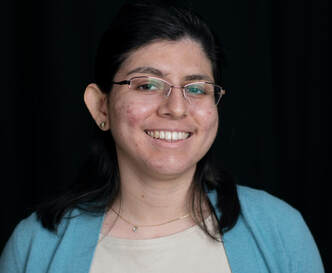 Angela Acosta is a bilingual Mexican American writer and Ph.D. Candidate in Iberian Studies at The Ohio State University. She won the 2015 Rhina P. Espaillat Award from West Chester University, and she was recently nominated for Best of the Net. Her speculative writing has or will appear in On Spec, Eye to the Telescope, Radon Journal, 365tomorrows, and Shoreline of Infinity. Her work has been featured in Latinx magazines like Panochazine, Somos en escrito, and Latinx Audio Lit Mag. She is author of the speculative poetry collection Summoning Space Travelers (Hiraeth Books 2022) and chapbook Fourth Generation Chicana Unicorn (Dancing Girl Press 2023). She enjoys rock climbing and biking in her free time. Matchmaking and Taxesby Russ López “Watch out,” my sister Elena warned me, “Abuelita Marisol has decided you are too old to be single. She’s hired Señora Alba to fix you up with a suitable young man.” Grandmother wasn’t the only one who thought I needed a partner. My mother gently told me last month, “I keep looking for a saint we could ask to help you find a novio.” I didn’t have the heart to tell her that the chances of the Catholic Church creating a patron saint of queer relationships was infinitesimally small. It didn’t matter who or what you were, my family thought no one should be single. My Aunt Davida kept pushing me to go out and meet guys. “Sleep around until you meet one you like,” was her advice. “That’s the best way to find true love.” This from a woman who married my uncle when she was sixteen and was still blissfully with him nearly fifty years later. One cousin suggested I should sign up for a dating service, not knowing all the apps I had on my phone, and another told me it was time for me to think about children. “You aren’t getting any younger,” he admonished. They preferred I meet a nice Mexican man, of course, or at least someone Latino. But that wasn’t necessary. Everyone just wanted me to be with someone. I had four siblings, all of whom had at least embarked on a long-term relationship even if they didn’t last. It was my turn, if only to give everyone something to gossip about. “I’m sure there is someone wonderful out there for you,” Elena promised me. “And we will all talk behind your back about why he puts up with your annoying habits.” I was twenty-six, out of school, and living on my own. I had graduated with a business degree and was an independent adult gainfully employed. On paper at least, it was time I acted like an adult. While my family was otherwise proud of me, Mom still had a picture of my league champion soccer team from my high school up in the hallway, they thought that being single made me incomplete. On the other hand, I felt like I was just starting out in life. Despite the low-cost education I received from the California State University system and living at home my first two years, I graduated with huge student loans I can barely make the payments on. I drive an old car that embarrasses me and live in a studio apartment my brother Mike calls the smallest in Silicon Valley. I have far too much Indian blood in me to pass for anything but Mexican so if that isn’t a guy’s taste, I am out of luck. An accountant for a real estate company, my only luxury is my gym membership. Now that I think about it, maybe I was too dull to be marriage material. If you want to hire a matchmaker, Señora Alba is a great choice. Not only is she a well-respected bruja, she also dabbles as a curandera, and during tax season prepares returns for half the neighborhood. Thus, she knows everyone: the good, the bad, the broke, and the single. In my family alone, she found Uncle Rodrigo his second wife, cured my cousin Manuela of hiccups by brewing a special herbal tea, and helped Elena straighten out her 401(k) roll over. “You weren’t too proud to go running to Alba to have your taxes done,” Elena taunted me. “What makes matchmaking so different?” Still, the idea of Alba assessing my physical, emotional, and financial strengths and weaknesses disturbed me. And though Alba has excellent taste in men, her love life is legendary, I was put off by her meddling. Angry that they thought I was a pathetic loser at romance, I vowed to Elena, “I am going to reject anyone that Alba picks out for me.” Childish, but they had hurt my feelings. The next evening at the gym, I found out my humiliation had gone public when Mike and his buddy Alejandro teased about the matchmaking going on all around me. “No ring yet,” Michael reported to Alejandro as he held my hand up. “I’ve heard Alba has interviewed over a hundred men in three languages and none have agreed to woo my hermanito.” “It’s his baby face,” Alejandro suggested as he pinched my cheek. “He’s cute in that muchacho next door kind of way but dating him would be like going out with a puppy dog. That’s not everyone’s taste.” Michael and Alejandro laughed while I turned red. They were best friends, having met when they started working at Mayfair High School where Mike taught Drama and Alejandro ran the ESL program. Though Alejandro was handsome and gay, I never paid much attention to him because he never expressed any interest in me. However, he had the key as to why Abuelita had made my love life her priority. “Last Saturday, your grandmother was at Pancho González and Julian Chávez ‘s wedding. You should have been there, it was spectacular,” he explained. “They wore matching tuxedos and arrived in separate coaches drawn by white horses. There was a sit-down dinner at eight prepared by a chef from Oaxaca, and a midnight buffet that featured sushi and a taco bar. They had a band inside rocking the best norteño music I’ve ever heard, and a DJ blasting party tunes out on the patio. Your grandmother danced for hours. Everyone did. Sometime after her third glass of champagne, Abuelita told me you were her only chance to have an over-the-top gay wedding in the family.” I was doomed. Over the next several days, I kept my eyes out for a setup, but nothing happened until Friday when Abuelita asked for a favor. “I bought a new television online and didn’t want it stolen off my porch, you know how bad the crime is on my street. So I had them deliver it at Santiago’s Market where I need you to pick it up for me. When you get there, see Tony, Santiago’s son. He’ll help you get the TV into your car and then come over with you to bring it up the stairs to my apartment. I arranged it all.” This was so obvious that I had a hard time not laughing. Still, if Abuelita asks me to do something, I do it. Again, my humiliation was public and there was a crowd at the market when I got there including my mother, two aunts, my brother, and Alejandro. It was as if someone had sold tickets. “This is too entertaining to pass up,” Alejandro said, smiling. To punish him and to thwart Alba’s machinations, I asked Alejandro to help me with the television. I admit I was tempted by Tony. He was mad handsome and still as built as he had been during his high school wrestling days when I had drooled over him. But I was determined not to let Grandmother run my love life and refused Tony’s offer to help. Abuelita must have been surprised when Alejandro and I carried her television into her apartment, but she didn’t say anything. I had won the first round in this war, but I didn’t gloat. Afterwards, Alejandro and I went out for burgers to dissect the setup. “You know Alba would lead with a Dominican, she loves their music,” he teased. “Let’s face it, your family could use some outside blood.” That was true. Just about everyone in the family had married someone from Coahuila. Abuela had married a second cousin from her little village while Mom and Dad had lived across the street from each other growing up. My family never went too far afield to find our mates. “Nothing against Tony, I’d have a roll in bed with him anytime.” I wondered why we had never hooked up. Maybe I was too timid to act on my crushes. “But he has no ambition beyond running his father’s store. I want someone who wishes he could go to Mars, even though he knows it will never happen,” I told Alejandro. “I want a guy who lives in his dreams. Tony is too literal.” “Dang, you are tough,” he replied. “I’m lucky that Alba isn’t pushing me on you.” We both laughed. Thanks to Alba, I started getting all sorts of strange requests. A guy I barely knew wanted me to be his date at his sister’s quinceañera party, a one-night trick from two years ago suddenly resurfaced to ask me to dinner, and a man at the gym invited me to go home with him. “You’re hot as hell, bro,” he said as he stood next to me in front of one of the wall mirrors by the free weights. “I want it right now.” Fortunately, Mike and Alejandro didn’t see us leave together. Gym guy was not one of Alba’s setups, however. Though I had a good time, it turned out he had a boyfriend. The hits kept coming. A guy on Grindr texted me that he was “Grandmother approved” while a bartender asked me how the matchmaking was going as he slipped me his phone number. “I am exhausted from all this,” I complained to Alejandro the next evening at the gym. “Cheer up,” he said as he hugged me. “Now you know everyone wants your hot body.” His arm around my shoulder felt good. The next Thursday, everyone went to see Mike’s students perform Romeo and Juliet. With a party of thirty in an open seating auditorium, it was chaos with people trying to figure out where to sit. At the very last second, Alba ordered Kyle Moon, a gym coach, to take the seat next to me. This may have been innocent, but with Alba in action, I suspected everything. As far as I knew, Kyle was straight and I was pretty sure that Abuelita would prefer me to date a Latinx guy, but under the circumstances, I was annoyed by this blatant setup. To make matters worse, Alejandro was sitting on the other side of Kyle, rather than next to me, and by this point, I was convinced that he should be the one I go out with. But of course, he wasn’t anyone’s idea of a proper boyfriend for me. Keeping my anger hot, Abuela and Alba sat behind me, and before the play started, they loudly assessed the romantic potential of every young man in the audience. I seethed. The family had found out I was gay ten years ago when I stupidly left a Valentine’s Day card from a classmate on the kitchen counter. Billy Martínez was a dream and had worked for a week to create a giant card that opened up into a three-dimensional football stadium with our names in a pink heart at the fifty-yard line. My parents were cool, though I was mortified when they put the card up on the mantle to show off. Elena helped me through that time. “Be grateful,” she told me. “Mom is trying to tell you the family loves you more than anything.” Not everyone was nice about my being gay. Aunt Julia’s boyfriend is always making crude jokes, and a cousin pointedly told me that I was never allowed to be near her kids. There were guys at my high school who threatened to kill me, and a group of girls nicknamed me mariposa rosa and painted pink butterflies and obscene drawings on my locker. I was happy to get out of there alive. Watching the doomed romance unfold on stage, I kept wondering why I was single and ultimately decided I was too shy. There were several men that in hindsight would have loved to become involved with me, but nothing ever happened because I was too scared to initiate a relationship. When this matchmaking ended, I vowed, I would go out there and act on my feelings. Then I decided not to wait. I abruptly asked Alejandro to go on a date as we walked out of the auditorium. “Sure, if you want,” was his response. I didn’t find that reassuring. Regretting my spontaneity and fearing more public humiliation, I said, “Please don’t tell anyone about this. You know how everyone is watching me.” He agreed to keep it quiet. Alejandro is so handsome, he makes me nervous. He is two inches taller than me with a perfectly proportioned body, well-muscled arms, and a widow’s peak that draws attention to his big sparkling eyes. We are about the same dark shade of brown and he has a way of talking with his hands that I find irresistible. Three years older than me, he was much more grounded than I could ever be. Though he likes to laugh and is always full of jokes, he is serious while I am all giggles. Thus, I didn’t have high hopes for us going forward. I figured he was only going out with me out of pity. It turned out to be the best date I had ever been on. We were blissfully happy and totally in sync with each other. At one point I was suppressing the urge to laugh and tell him I was having a great time because I didn’t want him to think I was a gushy romantic when Alejandro leaned back, laughed, and said, “This dinner with you is so wonderful, I don’t want it to end.” I was hooked. He spoke a lot about his family. “As the youngest, I am the only one with status; everyone else stays in the shadows so they don’t get picked up. From the start, I had to interpret for them and represent them when we faced the outside world.” I felt all of my privilege for being born in the US, but I also knew the pushes and pulls he had experienced. “We all have to work together to protect the most vulnerable of us,” I told him. “A lot of folks are here without documents. We live intertwined together, we share our lives. If we lost any one of them, we all would suffer,” I felt helpless as I always do when the topic is immigration. “I teach ESL to help the kids who are like me when I was young,” Alejandro told me. “There is so much pressure to get ahead, yet at the same time, their families so depend on them that they can’t keep up.” Mike had told me how Alejandro’s students adore him and how he is always helping them navigate the bureaucratic mess that ensnares non-citizens. “I know how our families frame our lives,” I said. “My father wouldn’t let me become a social worker or a community organizer. No. I had to major in something practical like business. ‘We gave up your brother to teaching to help our people. You have to look for other ways to make something of yourself,’ he told me. You’ve met my father. I couldn’t ever go against his wishes.” “I understand. We are all still trying to figure out our way between our families and the world,” Alejandro nodded. He still lived at home, though Mike told me he wanted to move out. “I’m always second guessing myself. I wonder if teaching is the right way to go. Sometimes I think I should run for office to change things. My father thinks that I am crazy when I talk about that, but I like to aim high.” I just stared into Alejandro’s eyes, lost in their possibilities. After a brief silence, Alejandro said, “When you give me that cute puppy dog look, I have to ask if your apartment is really as small as your brother says it is.” “It is pretty cramped,” I answered. “When I have a guy over, we have to be on top of each other all night long.” I let that sink in as I explained, “I moved out of my parents’ place when my sister and her three kids came to live with us. I was too old to sleep on a couch every night.” Then I took another bold step. “Want to come back with me?” When Alejandro looked around my tiny apartment, he smiled and said wistfully, “You are so lucky. I wish I had a place like this.” Then he pushed me down on the bed. Within a week Alejandro was spending every night with me. By the end of the month, he had moved in. We alternated Sunday dinners, one with his family, one with mine, and we did everything together: the gym, soccer, and knocking on doors to get our candidate elected to the city council. Still, as far as I knew no one had a clue we were seeing each other, and I was happy I had outsmarted Alba. I wanted to keep things quiet but the news of our relationship began to leak out. Elena saw Alejandro’s car parked in front of my apartment early one morning, and Mike caught us sharing a drunk sloppy kiss after our soccer team went out to celebrate a big win. He confronted us when he saw me wearing Alejandro’s beat up Mayfair High tee shirt at the gym. “Listen up, lovebirds. Either you go public, or I am going to tell everyone. I can’t keep a secret.” It is hard to overstate the status of Mexican grandmothers. Fathers may love us to pieces, but they always have unreasonable expectations. We have to have perfect in every way. My father even had an opinion on what car I should drive. “Get a dark sedan. Cops always pull over a Mexican driving a red SUV.” Daughters have it even worse. Mexican fathers’ primary role in life is to make their daughters miserable by being overprotective. They hate every boy who even glances at their virginal little girls. Mexican mothers are similarly ambiguous. They will fight to the death to protect us, but they also feel it is their duty to wheedle, threaten, prompt, and cajole their sons to do what they think is right. It drove my mom to madness if I left the house in a wrinkled shirt, for example. “If the teachers see you disheveled, they will blame me,” she said, tears running down her cheeks at the thought of the humiliation. Again, Mexican daughters have it worse because their mothers try extremely hard to prevent them from making the same mistakes they did. Daughters are too much like their mothers to get along. Grandmothers, however, are the warm source of unconditional love. There are never any fights, never an argument or raised voice, and they never hurt our feelings. Abuelita would slip me cookies when my parents weren’t looking, and she let me stay up late to watch spooky movies when she babysat me. I admit to being annoyed when she made me say the rosary with her, and I grew bored the hundredth time she told me how bad things were in Mexico before she left. But those were minor quibbles. Abuelita was the tough matriarch of our family. Denied the opportunity to go to school, she had taught herself how to read and write Spanish and after she moved to California, learned it all over again in English. She organized everyone to come to the United States, and when the window to citizenship opened up in the eighties, she had everyone apply. She and Abuelito raised seven children, and thanks to their force of will, none of their children or grandchildren succumbed to gangs or drugs. After a lifetime of hard work cleaning hotel rooms, Abuelita was at last retired, but only because her children demanded she rest. We all did whatever we could to please her. Imagine my fright that I was going to confront her, perhaps the first time since the time of the fifth sun—the Aztec creation myth says we are in the fifth world—a grandson was going to directly contradict his grandmother. But I owed it to her. I couldn’t let her keep spending her money finding me a match. My opportunity came while we were at Tía Agueda’s house. Alejandro was out back teaching Mike’s four-year-old and the other kids how to merengue; by now he had spent so much time with my family that if I showed up someplace without him, everyone asked where he was. My parents and their siblings were playing cards around the dining table while arguing over who was responsible for the latest defeat of the Mexican National Soccer Team. Abuelita and I were cleaning up in the kitchen. She is a tiny woman; I could easily lift her up over my head. Her short hair had turned gray before I was born; now it was mostly white, which made her dark skin glow. While she talked about her volunteer work at the parish, I kept looking at her to assess her mood. But she is as undecipherable as a marble statue. No one knows what Abuelita is thinking, but we always know what she wants. And here I was about to go against her wishes. Surprisingly, it went very well. “Alejandro is a good boy. His family is very proud of him.” That is the greatest complement Abuelita has for anyone. “Es muy guapo,” she added. “Though both of you need to put on some weight.” “No hard feelings?” I asked. “I am so sorry you were worried about me. I apologized for making you go through all this.” It was heartfelt. “Pues, it was worth a try. I only wanted to help,” she said with a smile. I offered to reimburse her for Alba’s fee, but she refused. “This is a business transaction between the Bruja and me. Don’t go poking into it.” I backed off and put it out of my mind because I was excited that I was in a full blown, open, happy relationship with Alejandro. And I was with him on my own, without anyone pushing us together. My sister finally told me what happened. “You really are a fool,” Elena rolled her eyes at my innocence. “No one can outsmart a bruja. It’s impossible to stop an abuela when she sets her mind to do something. Everyone knows that Alba planned to set you up with Alejandro from the beginning.”  Russ López is the author of six nonfiction books as well as book reviews and journal articles. After an extensive career of community organizing and social justice advocacy, he is the editor of LatineLit, a magazine that publishes fiction by and about Latinx people. “Matchmaking and Taxes” is part of a planned collection of short stories tentatively titled, The Lesser Saints of Silicon Valley. Originally from California, López has degrees from Stanford, Harvard, and Boston University. He currently divides his time between Boston and Provincetown, Massachusetts. Prologue: Saturday, October 4, 2003; |
| Shaiti Castillo is a Mexican-American writer from Mesa, Arizona. She is currently residing in Tucson, Arizona where she recently graduated from the University of Arizona with a Bachelors in Creative Writing. As a first generation student, she is proud to be the first in her family to graduate from an accredited University. She spent the majority of her childhood visiting relatives in different parts of México and takes great pride in her heritage. She hopes to share her cultural experiences through the art of storytelling. This is her first publication. |
Archives
July 2024
June 2024
April 2024
March 2024
November 2023
August 2023
July 2023
June 2023
May 2023
April 2023
February 2023
January 2023
December 2022
November 2022
September 2022
August 2022
July 2022
June 2022
May 2022
April 2022
March 2022
February 2022
December 2021
November 2021
September 2021
August 2021
July 2021
June 2021
May 2021
April 2021
December 2020
September 2020
July 2020
November 2019
September 2019
July 2019
June 2019
May 2019
April 2019
March 2019
January 2019
December 2018
November 2018
October 2018
September 2018
August 2018
June 2018
May 2018
April 2018
March 2018
February 2018
January 2018
February 2010
Categories
All
Archive
Aztec
Aztlan
Barrio
Bilingualism
Borderlands
Boricua / Puerto Rican
Brujas
California
Chicanismo
Chicano/a/x
ChupaCabra
Colombian
Colonialism
Contest
Contest Winners
Crime
Cuba
Cuban American
Cuento
Cultura
Culture
Curanderismo
Death
Detective Novel
Día De Muertos
Dominican
Ebooks
El Salvador
Español
Español & English
Excerpt
Extra Fiction
Extra Fiction Contest
Fable
Family
Fantasy
Farmworkers
Fiction
First Publication
Flash Fiction
Genre
Guatemalan American
Hispano
Historical Fiction
History
Horror
Human Rights
Humor
Immigration
Indigenous
Inglespañol
Joaquin Murrieta
La Frontera
La Llorona
Latino Scifi
Los Angeles
Magical Realism
Mature
Mexican American
Mexico
Migration
Music
Mystery
Mythology
New Mexico
New Mexico History
Nicaraguan American
Novel
Novel In Progress
Novella
Penitentes
Peruvian American
Pets
Puerto Rico
Racism
Religion
Review
Romance
Romantico
Scifi
Sci Fi
Serial
Short Story
Southwest
Tainofuturism
Texas
Tommy Villalobos
Trauma
Women
Writing
Young Writers
Zoot Suits
Donate and Make Literature Happen
is published by the Somos En Escrito Literary Foundation,
a 501 (c) (3) non-profit, tax-exempt corporation. EIN 81-3162209



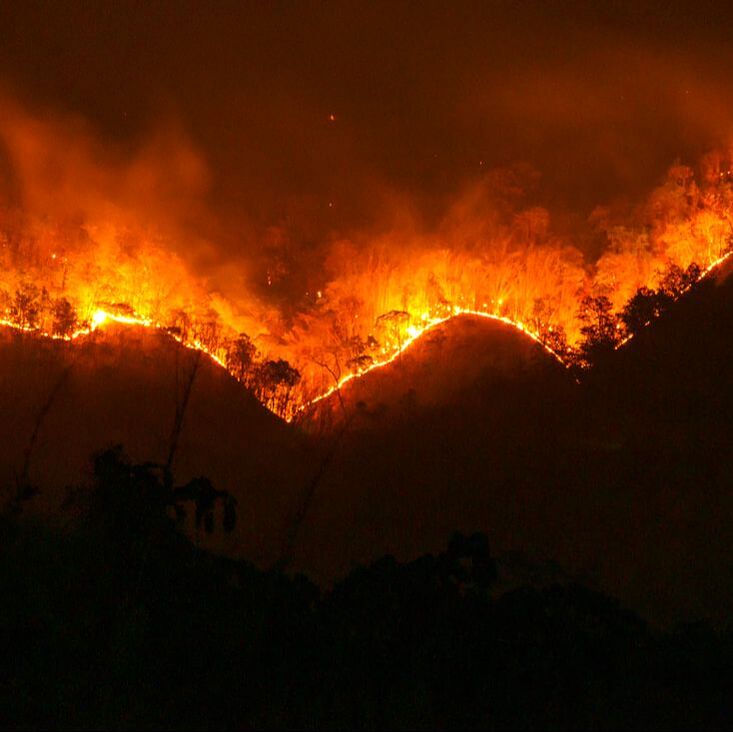
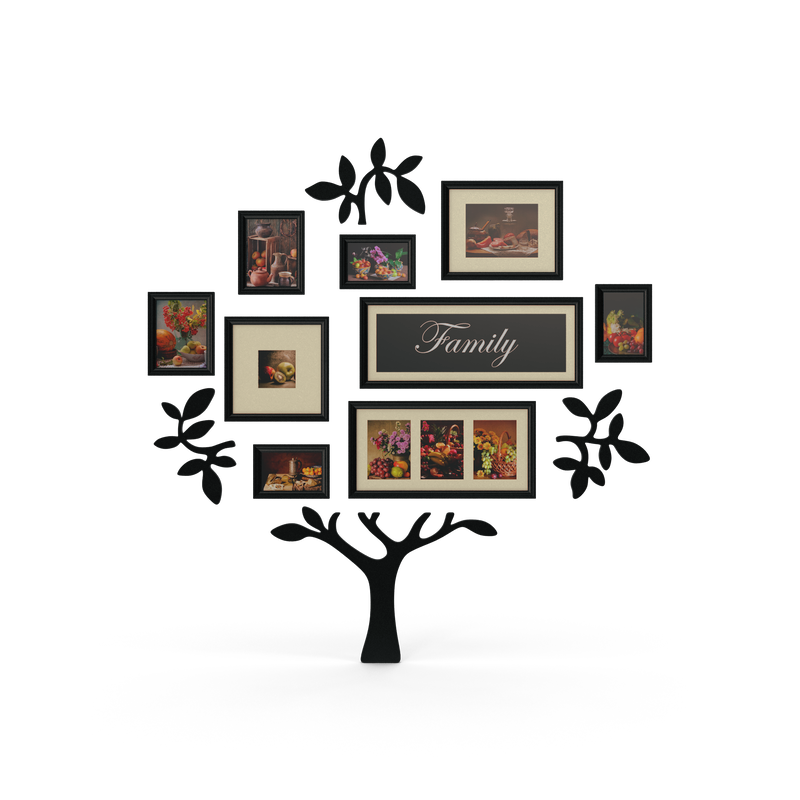

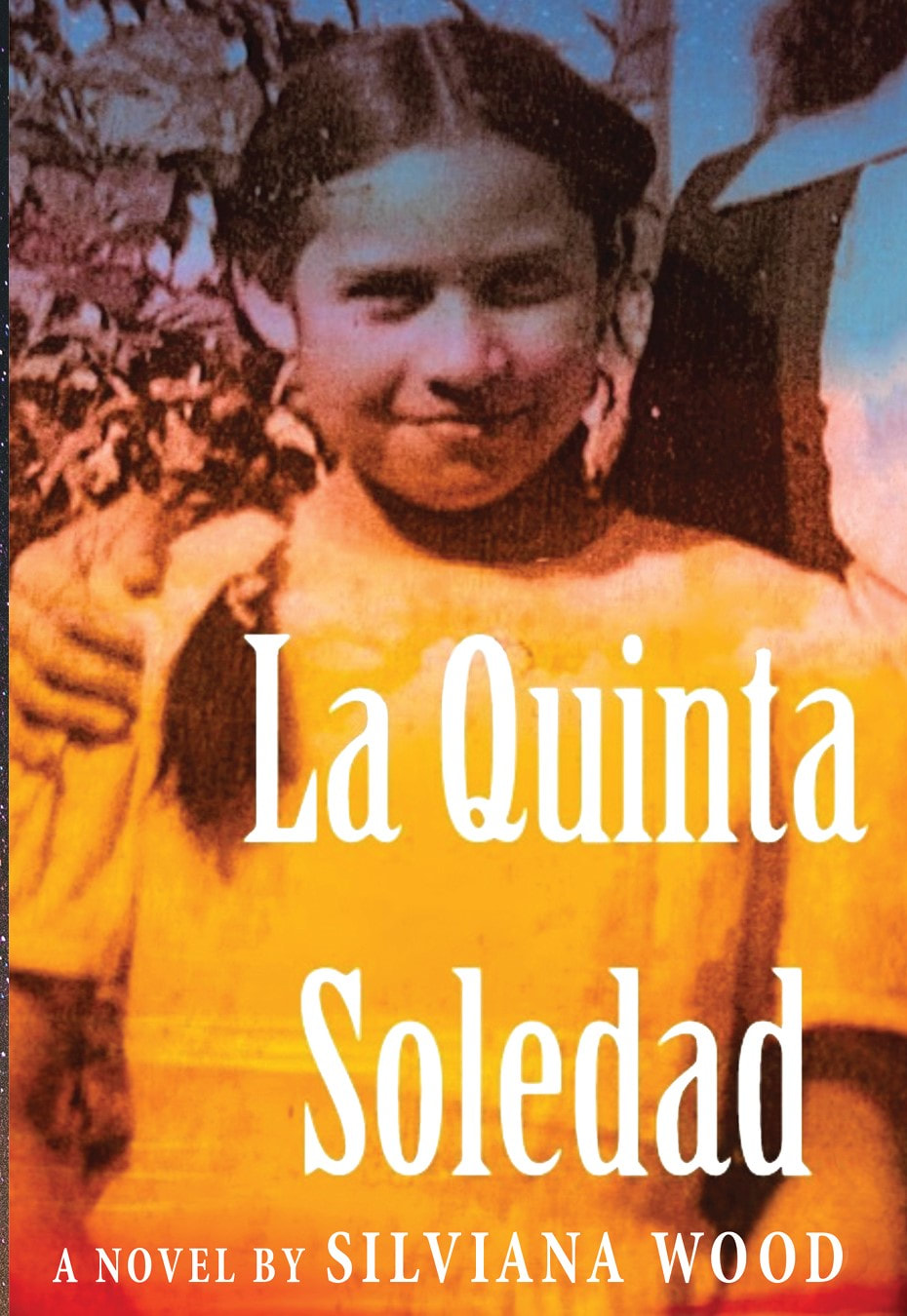
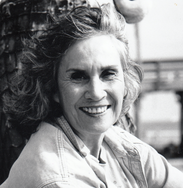
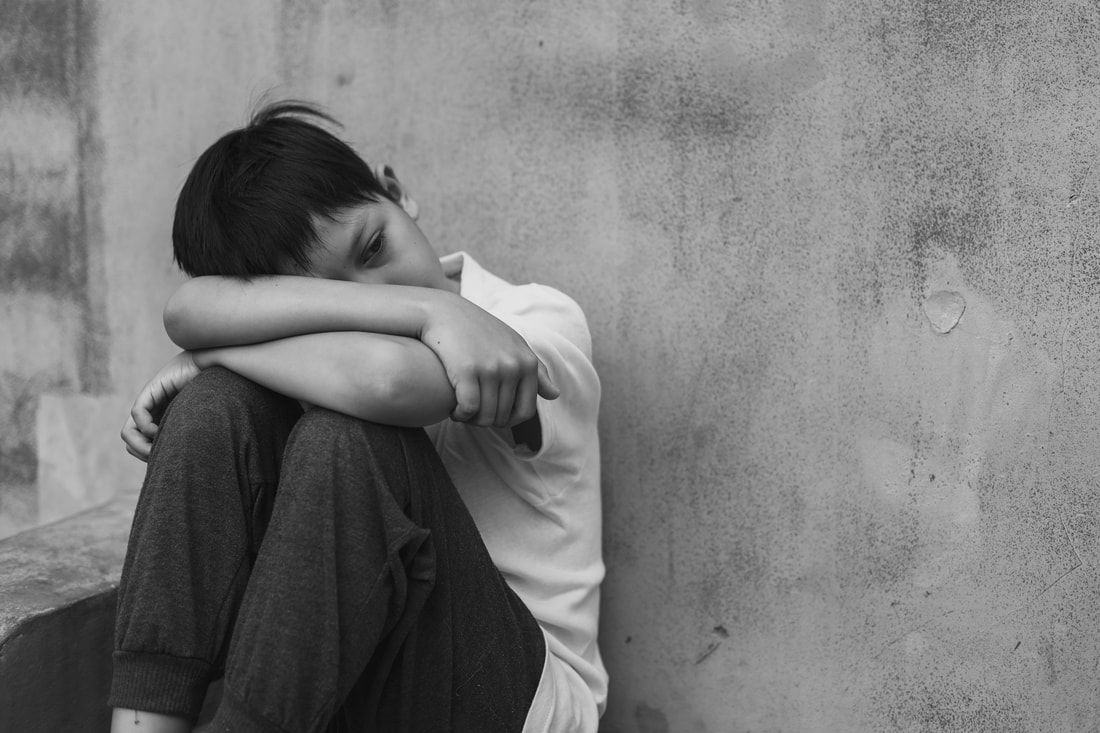
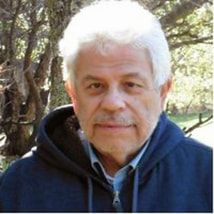


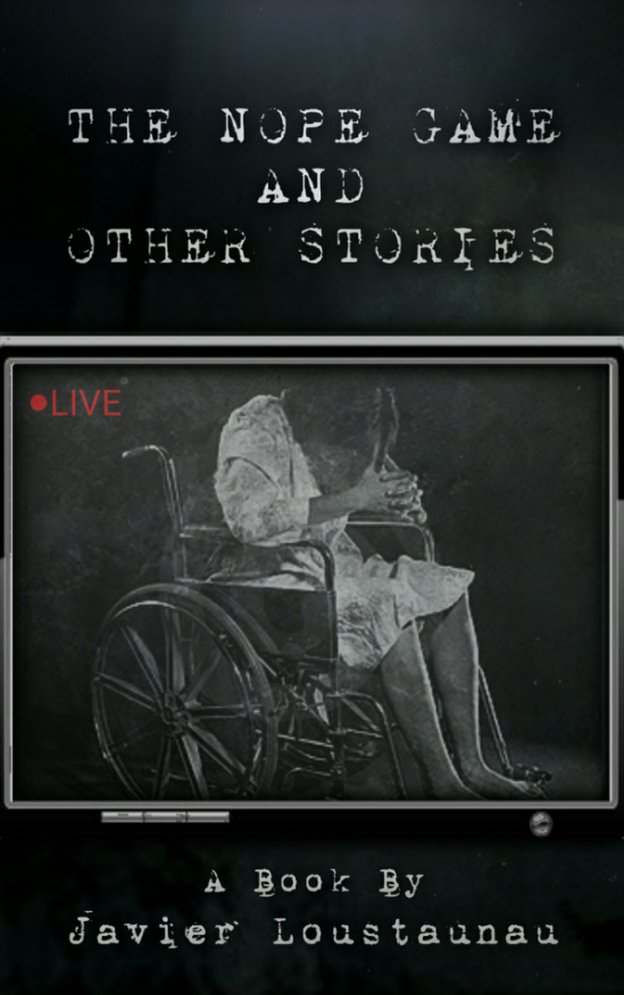





 RSS Feed
RSS Feed